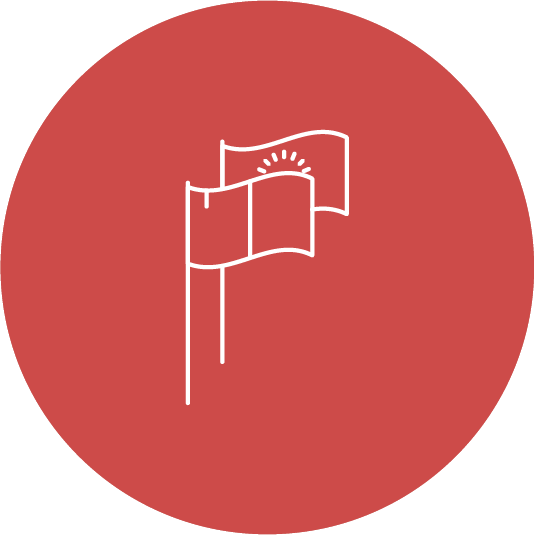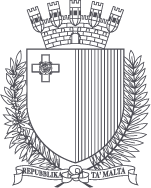
At the 78th session of the UN General Assembly, Malta joins a global forum of small states that have built global diplomacy through the force of consensus and a dedication to the rules-based system that the UN safeguards – even in a hall of ‘big hitters’, small states are a force to be reckoned with.
Malta’s Prime Minister Robert Abela returns to the United Nations General Assembly in New York in September, where a High-Level Week of world leaders will keep the global issues of pandemic preparedness, climate change, and the ongoing stock-take of the 2030 Sustainable Development Goals, on the top of the world’s agenda.
It is in this hallowed hall of international diplomacy that some of the world’s major historical chapters have been marked by unforgettable speeches that give the General Assembly its enduring image as the globe’s ‘town hall’.
Here Yasser Arafat, leader of the Palestinian Liberation Organisation, addressed the UN for the first time in 1974 “bearing an olive branch and a freedom fighter’s gun” to call for the establishment of a Palestinian state that would include Muslims, Christians and Jews. And the voices of a world riven by the Cold War gave vent with interminable speeches against the free world – Fidel Castro’s 1960 speech remains the longest ever recorded at 269 minutes.
But UNGA is so much more than speeches and heads of state.
Even in the shadow of these momentous events in the storied life of the United Nations and the global role played by major powers, it bears reminding that it is small states that make up the majority of United Nations member states.
And it is here that small states, like Malta and other similar island-nations from across the globe, can find the opportunity to play a role in global affairs that is disproportionate to their size. It is for this reason that rules-based multilateralism that underpins the UN’s work is what gives the strength to small states to punch above their weight and create meaningful alliances on causes which need to be pushed to the top of the international agenda.
Punching above our weight
“Malta has consistently been a supporter of effective multilateralism and joint decision making in today’s day and age. We believe that a joint approach to global challenges – such as climate change – is the most effective way to address today’s global challenges,” said Foreign Minister Ian Borg.
“For a country like Malta, which depends on respect of international law in order to survive, the United Nations continues to serve as a beacon of hope, and the promoter of international norms which safeguard the interests of the different members of the international community.
“The world needs a renewed commitment to the principles of the UN Charter. As a committed member state, Malta is looking towards maintaining a strong engagement during the high-level week and beyond.”
Since 1 January, 2023, Malta has taken a seat as a non-permanent member of the UN Security Council. A month later, it took over the rotating presidency of the UN Security Council, setting the agenda over the next four weeks that coincided with the first anniversary of the Russian invasion of Ukraine: an event in which the island’s diplomatic finesse was in full view.
Indeed, Malta has excelled in a multilateral diplomacy which, early on since its newly acquired independence in 1964, allowed it to make its voice heard as a thought leader in the UN. Considering that Malta was the smallest member of the United Nations by area, its bold proposal in 1967 to the UNGA to declare the resources of the oceans beyond national jurisdiction as “the common heritage of mankind”, presaged a decades-long commitment to this radical treaty, the Law of the Sea, to ensure the world’s peaceful use and sharing of the oceans’ bounty. The process of negotiating the UN Convention on the Law of the Sea, which came into force in 1994 and has now been ratified by 165 states, was driven throughout by small maritime states, with Malta, Singapore, Fiji, and New Zealand playing significant roles.
It is for this reason that small states, lacking traditional forms of hard power, highly value the UN’s system of upholding the international rule of law. Small states, in their multitude and through their common approach to diplomacy, set much store by the international system that safeguards them, and it is only here at the UN that they can engage in consensus building and effective bilateral relations with far-flung nations.
Malta priorities during High-Level Week
As Malta heads into the 78th Session of the United Nations General Assembly, the stage will also be set for a High-Level Week and a General Debate on 19 September that will deal with issues of global health, climate change and sustainable development goals.
But during High-Level Week, Malta will also be prioritising food security, resilience of Small Island Developing States (SIDS), and its Southern neighbourhood.
Prime Minister Robert Abela will be accompanied by Deputy Prime Minister Chris Fearne and foreign minister Ian Borg, where apart from bilateral meetings held on the fringes of the main events, Malta’s foreign ministry will be focusing its political and financial resources on key issues that are crucial for regional and global peace, security and prosperity.
Food security is one of three major issues Malta is pushing during High-Level Week. Amidst the current food security crisis, Malta will call for decisive action to tackle food affordability and availability. Given Malta’s intrinsic vulnerabilities as a small island-state, solutions to the crisis must be multi-dimensional, focussing on increasing capacities of local production by investing in sustainable agricultural and biological solutions, while also safeguarding sustainable, resilient, and nutritious global food supply chains by minimising disruption.
In another forum in which Malta’s small-state status allows it to come to the fore, the island-nation will keep advocating for Small Island Developing States (SIDS) and raise awareness of the unique vulnerabilities of small states facing the challenges of climate change. Following the ‘Island for Islands’ initiative launched at COP26, Malta keeps forging meaningful and effective partnerships aimed at enhancing the resilience of SIDS, through the sharing of information and best practices.
And in a rejoinder to Malta’s priority on food security, as a Mediterranean nation its southern neighbourhood remains high on its international agenda.
“Malta is concerned about the profound impact which food insecurity, inflation, and the rising costs for basic needs is having on the livelihoods and welfare of people in the Mediterranean region,” said foreign minister Ian Borg.
“Malta believes the prevention of conflict, the re-building of institutions, and participation of all members in society are crucial to ensure peace, stability, and economic prosperity.”
Today more than ever, as the world seeks to tackle innumerable challenges, it needs a well-functioning, rules-based international order, with an effective United Nations at its core. That is why Malta strongly supports the UN reform efforts led by the UN Secretary-General, including implementation of recommendations from his report ‘Our Common Agenda’ released in September 2021.
Climate, SDGs and global health at UNGA
A year on since UN Secretary-General António Guterres opened the preceding UNGA session with his blunt missive – “Our world is in peril, and paralysed” – the world has yet to overcome the geopolitical tensions that keep global peace at bay. Chiefly, the war in Ukraine rages on, with the world looking on at the effects Russia’s invasion has had on global food stocks and fuel supplies.
This is why Malta’s priorities during High-Level Week touch upon the very problems generated beyond the borders of the war in Ukraine – food security, climate change, and the prevention of conflict.
Malta will also be playing a part in three high-level meetings convened on global health where world leaders will recommit to ending tuberculosis (TB), deliver on universal health coverage (UHC), and strengthening pandemic prevention, preparedness, and response. Malta is expected to play a central role in all three events, having been actively involved in the negotiations of the political declarations expected to be adopted. Deputy Prime Minister and Minister for Health Chris Fearne is co-chair for the panel discussion on health and wellbeing in a post-COVID world.
Another key issue for this UNGA session’s High-Level Week will be the Climate Ambition Summit on 20 September, where governments, business, cities and regions, civil society, and finance, come together to propose new, tangible and credible climate action that can accelerate the pace of climate adaptation and mitigation.
Different interlocutors will announce major steps forward, with an emphasis on ambition, credibility and implementation: ambition, especially for major-emitter governments, credibility, aimed at leaders in finance and cities, and implementation, the latter aimed at showcasing existing and emerging partnerships to accelerate decarbonisation in high-emitting sectors such as energy or shipping or deliver progress on climate justice, such as early warning systems and adaptation financing. Also taking centre-stage at the High-Level Week will be 2023 Sustainable Development Goal Summit, held over the 18-19 September. The Summit aims to promote a new phase of accelerated progress towards the Sustainable Development Goals, in the context of ongoing difficulties caused by the COVID-19 pandemic and Russia’s invasion of Ukraine. With the international community now at the half-way point for the 2030 deadline set to achieve the SDGs, greater efforts are needed if countries – including least-developed countries – are to reach the established targets.






